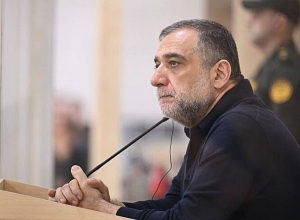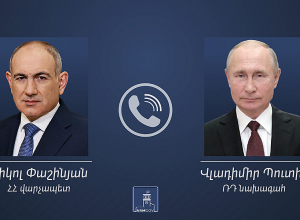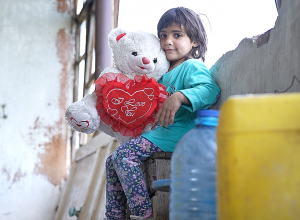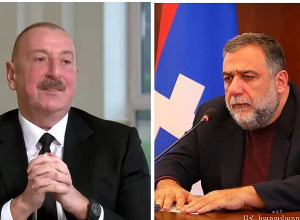Lachin corridor: “A humanitarian response alone is not sufficient; a political solution is needed” (video)
Support A1+!At the end of an urgent debate on ‘Ensuring free and safe access through the Lachin Corridor’, the Parliamentary Assembly of the Council of Europe (PACE) today expressed its extreme concern by events which have unfolded since the signature of the Trilateral Statement on 9 November 2020, and which culminated on 12 December 2022 with the interruption of the free and safe passage through the Lachin corridor and the subsequent deliberate cutting of electricity and gas supplies to the region.
While fully recognising Azerbaijan’s concern to ensure security within its territory and at its borders, “the Assembly is struck by the fact that its leadership does not acknowledge the very serious humanitarian and human rights consequences stemming from the present situation”.
Adopting a resolution, based on the report prepared by Paul Gavan (Ireland, UEL), the Assembly underlined that Azerbaijan has “the responsibility to protect and ensure the security of everyone living within its internationally recognised borders”. Drawing international attention to the situation at the Lachin corridor and its human rights and humanitarian consequences “is necessary in recalling this responsibility”.
Recognising that the absence of free and safe access through the Lachin corridor “is part of a much broader issue”, the Assembly expressed its conviction that “a humanitarian response alone is not sufficient and that a political solution is needed”. It urgently called for addressing the issues of the rights and security of the Armenian population of Nagorno-Karabakh through dialogue between Baku and Khakendi/Stepanakert and a neutral international involvement in any peace implementation mechanism to be put in place.
Noting that the International Court of Justice ordered Azerbaijan to urgently “take all measures at its disposal to ensure unimpeded movement of persons, vehicles and cargo along the Lachin Corridor in both directions”, the Assembly called on Azerbaijan to also comply with this order urgently.
While noting that the mirror applications brought by Azerbaijan against Armenia were rejected by both international courts, the Assembly believes that Armenia must also play a role in de-escalating the tensions, and that it should be open to some form of international monitoring with the aim of assessing the veracity of Azerbaijan’s allegations regarding the illegal weapons being brought into Nagorno-Karabakh.
The Assembly is extremely worried by the “hostile and threatening rhetoric” used against Armenians at the highest level of Azerbaijan’s leadership and urged Azerbaijan to repudiate such rhetoric and take steps to tackle both hate speech, including by public and high-level officials, and hate crimes. Also aware of hate speech being used by individuals in Armenia; it likewise urged Armenia’s leadership “to condemn such hate speech” and the authorities to take appropriate measures to punish it.
The Assembly called on Azerbaijan to invite a Council of Europe delegation to visit the Lachin corridor and Nagorno-Karabakh for a fact-finding mission, to assess the situation on the ground.
While welcoming the mutual recognition of the territorial integrity of Armenia and Azerbaijan and seeing this as the first steps towards the end of a conflict which has already caused too many deaths and tragedies on both sides, the Assembly recalled that for more than 30 years, Armenia and Azerbaijan have been in conflict, and that both countries committed themselves to settle the conflict through peaceful means upon accession to the Council of Europe in January 2001.



